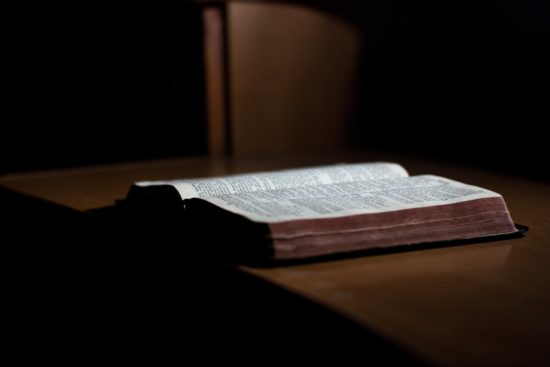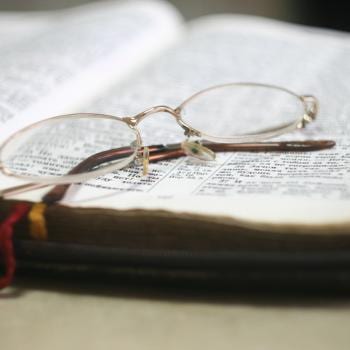
This week, my Bible reading plan brought me to the Minor Prophets. I have been a Christian for twenty years and sometimes I still struggle to read the Minor Prophets profitably. I doubt that I am alone in this assessment, but I have also found that putting in the work to understand these twelve little-known books can also pay great dividends by helping us grow in our knowledge of God, increase our grasp of the whole Bible, and live the Christian life more faithfully.
The next time your Bible reading plan takes you to the Minor Prophets, apply these four suggestions.
Read the Minor Prophets in Light of their Historical Context
It would be difficult to grasp what is happening in the diary of Anne Frank without knowing something about Nazi Germany during World War 2. In the same way, knowing the historical setting for the Minor Prophets helps us to grasp their message. With some exceptions, the Minor Prophets give you a key to unlock the historical setting in which they speak.
Let’s take the book of Hosea as an example. The first verse of Hosea says, “The world of the Lord that came to Hosea, the son of Beeri, in the days of Uzziah, Jotham, Ahaz, and Hezekiah, kings of Judah, and in the days of Jeroboam, the son of Joash, king of Israel.” The list of kings in the first verse gives us the historical setting for the rest of the book. Look at the names of these kings then go read about them in the books of Kings and Chronicles. This will give you a window into the world Hosea is addressing.
In addition, flip through the introductions to the other prophets and you will find that several of them also spoke during the same time period Hosea did. Isaiah, Amos, and Micah were contemporaries of Hosea. So if you are reading straight through the Minor Prophets in your reading plan, pay attention to what Micah and Amos have in common with Hosea. This is a little bit of extra work, but it will increase your ability to read the Minor Prophets and benefit from them.
Read the Minor Prophets with the New Testament in Mind
Christians living in 2017 have a great advantage in reading the Old Testament. I’m not talking about the commentaries, archaeological studies, or hundreds of other resources we could be thankful for. Instead, I am talking about our possession of the New Testament. The Bible’s last twenty-seven books are a God-inspired commentary on the first thirty-nine.
Find a list of the Old Testament verses quoted by New Testament writers and keep nearby when you read the Minor Prophets. (The writers at Knowable Word have a great spreadsheet that you can sort by Old Testament order or New Testament order.) When you run across a verse the New Testament writers quote, flip over and see how they used it. What connection did they believe this verse made to the work of Christ? Then draw a line under the verse in its original context and write the New Testament reference out beside it. Then, go to where it is quoted in the New Testament and make a note of where the Old Testament quotation can be found. When you do this, you start making natural connections between the Old and New Testaments and gain a better grasp of how the whole Bible fits together.
Read the Minor Prophets to Know God
Sometimes, we are so quick to look for personal applications that we forget to stop and see what the Bible teaches about God. After all, the Bible is his revelation of himself to us, so shouldn’t we listen to what he has to say about himself? We should read with a bent towards application, but if we miss God in the process we haven’t really applied the Bible.
When you read the Minor Prophets, look for what they say about God’s character and glory. Do they say anything about his attributes that make him altogether unlike us? What can they teach us about God’s attributes that we should reflect in our own lives?
Jonah contains an example of what we commonly call the communicable attributes of God. These are the attributes of God that we can reflect as we grow to be more like him. Think about Jonah as he pouts because God did not destroy Nineveh. When God asks Jonah if he should be angry, Jonah responds that he didn’t want to come to Nineveh because he knew that God was gracious and compassionate. In doing so, he quotes from Exodus 34:6-7, which helps us understand how the prophets reflected on the earlier Old Testament writings. The Lord takes what Jonah said and compares his compassion for people to Jonah’s petulant tirade. In his response to Jonah, the Lord calls him, and us, to show the same kind of compassion to people that God himself does.
Isn’t interesting that Jonah didn’t want to go to Nineveh because he knows from reading the Exodus that God is compassionate and we think the God of the Old Testament is all wrath and the God of the New Testament is all love? When we think this way, it is a bad reading of both Testaments. The wrath of God can be found in all four Gospels, the book of Acts, and in many New Testament epistles. We see the love of God plastered across the books of the Law, the Historical Books, the Writings, and the Prophets. When we read the Minor Prophets and take time to hear their message, we will see a picture of God’s love for his people in a more beautiful and nuanced way than if we just relied on our modern platitudes about him.
Read the Minor Prophets to Know What God Demands of His People
The Minor Prophets call us to know, love, worship, serve, and honor the Lord. In Malachi 1, we run headfirst into what is known as God’s incommunicable attributes. These are the attributes of God which remind us that he is very different than us. The Lord refers to how sons honor their fathers and servants honor their masters, but since he is God, the greatest father, he wants to know why he is not being honored. God demands honor, worship, and obedience from his people in a way that would be idolatrous for anyone else in the universe but him.
While the Minor Prophets summon us to a personal love for and obedience to God, they also called us away from a faith that is merely personalized. One of the best-known verses in the Minor Prophets comes from Micah 6:8. “He has told you, O man, what is good; and what does the Lord require of you but to do justice, and to love kindness, and to walk humbly with your God?” Here, the prophet shows us that our personal walk with God must have an outward orientation. In particular, we show kindness towards others and do that which is just.
While some evangelicals increasingly warn about straying towards becoming “social justice warriors,” we cannot ignore the call for Christians to pursue justice here in Micah 6:8. This one verse echoes concerns throughout the prophets that God’s people seek to protect those who are vulnerable and do what is necessary to end the methods by which they might be exploited. While this means we should be concerned about unjust social structures, the prophets remind us that we must first look at ourselves to ensure we walk in a manner consistent with justice and kindness towards others.
If Christians want to grow and profit from all of Scripture, then we will have to go to some areas of the Bible that make us uncomfortable and call for more serious thought than we are accustomed to bringing to our Scripture reading. If we read the Minor Prophets with our minds turned on and looking for them to teach us about God and the Christian life, then we can be confident that the Holy Spirit will give us insight so that his word will equip us to live fruitful lives for the glory of his name.
Related Posts:
“How to Read the Bible Every Day“
“4 Bible Reading Strategies for Reading Plan Quitters“
For Further Reading:
How to Read & Understand the Biblical Prophets by Peter Gentry
How to Read the Bible for All Its Worth by Gordon Fee and Doulgas Stuart











